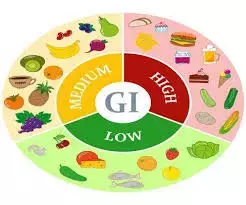- Home
- Medical news & Guidelines
- Anesthesiology
- Cardiology and CTVS
- Critical Care
- Dentistry
- Dermatology
- Diabetes and Endocrinology
- ENT
- Gastroenterology
- Medicine
- Nephrology
- Neurology
- Obstretics-Gynaecology
- Oncology
- Ophthalmology
- Orthopaedics
- Pediatrics-Neonatology
- Psychiatry
- Pulmonology
- Radiology
- Surgery
- Urology
- Laboratory Medicine
- Diet
- Nursing
- Paramedical
- Physiotherapy
- Health news
- Fact Check
- Bone Health Fact Check
- Brain Health Fact Check
- Cancer Related Fact Check
- Child Care Fact Check
- Dental and oral health fact check
- Diabetes and metabolic health fact check
- Diet and Nutrition Fact Check
- Eye and ENT Care Fact Check
- Fitness fact check
- Gut health fact check
- Heart health fact check
- Kidney health fact check
- Medical education fact check
- Men's health fact check
- Respiratory fact check
- Skin and hair care fact check
- Vaccine and Immunization fact check
- Women's health fact check
- AYUSH
- State News
- Andaman and Nicobar Islands
- Andhra Pradesh
- Arunachal Pradesh
- Assam
- Bihar
- Chandigarh
- Chattisgarh
- Dadra and Nagar Haveli
- Daman and Diu
- Delhi
- Goa
- Gujarat
- Haryana
- Himachal Pradesh
- Jammu & Kashmir
- Jharkhand
- Karnataka
- Kerala
- Ladakh
- Lakshadweep
- Madhya Pradesh
- Maharashtra
- Manipur
- Meghalaya
- Mizoram
- Nagaland
- Odisha
- Puducherry
- Punjab
- Rajasthan
- Sikkim
- Tamil Nadu
- Telangana
- Tripura
- Uttar Pradesh
- Uttrakhand
- West Bengal
- Medical Education
- Industry
Higher Prognostic Nutritional Index linked to low prevalence of RA and subsequent mortality, finds study

Higher Prognostic Nutritional Index linked to the low prevalence of Rheumatoid arthritis and subsequent mortality finds a study published in the BMC Public Health.
The prognostic nutritional index (PNI) is a comprehensive measure of individual immune and nutritional status. This study aimed to evaluate the role of PNI in the presence and mortality of rheumatoid arthritis (RA). This study used data of participants aged ≥ 40 years from the National Health and Nutrition Examination Survey (NHANES) 2003–2018. PNI was calculated using serum albumin and lymphocyte count.
The relationship between PNI and the prevalence of Rheumatoid arthritis and mortality among Rheumatoid arthritis patients was assessed using logistic and Cox regression models. Nonlinear associations were explored using restricted cubic splines (RCS). Results: Of 18,245 participants (mean 55.4 years, 49% female), 1901 had Rheumatoid arthritis, among whom (480/1899, 25%) died during a median follow-up period of 84 months. PNI was inversely associated with the likelihood of having Rheumatoid arthritis (odds ratio = 0.97, 95% confidence interval [CI]: 0.95–0.98). Compared to participants whose PNI was in the lowest quartile, those in other quartiles had a reduced likelihood of having Rheumatoid arthritis by 21-38% (Ptrend <0.01).
Cox regression analysis revealed an inverse association between PNI and all-cause mortality (hazard ratio = 0.95, 95%CI: 0.91–0.99). An L-shaped association was observed between PNI and the presence and all-cause mortality of Rheumatoid arthritis, with turning points occurring around the mean value of PNI. The presence and all-cause mortality of Rheumatoid arthritis was significantly reduced before the turning points of PNI and plateaued afterwards. In middle-aged and older adults, there is an inverse association between PNI and the presence and all-cause mortality of Rheumatoid arthritis.
Reference:
Wang, J., Zhu, R., Fang, H. et al. Association of prognostic nutritional index with the presence and all-cause mortality of rheumatoid arthritis: the National Health and Nutrition Examination Survey 2003–2018. BMC Public Health 24, 3281 (2024). https://doi.org/10.1186/s12889-024-20795-0
Dr. Shravani Dali has completed her BDS from Pravara institute of medical sciences, loni. Following which she extensively worked in the healthcare sector for 2+ years. She has been actively involved in writing blogs in field of health and wellness. Currently she is pursuing her Masters of public health-health administration from Tata institute of social sciences. She can be contacted at editorial@medicaldialogues.in.
Dr Kamal Kant Kohli-MBBS, DTCD- a chest specialist with more than 30 years of practice and a flair for writing clinical articles, Dr Kamal Kant Kohli joined Medical Dialogues as a Chief Editor of Medical News. Besides writing articles, as an editor, he proofreads and verifies all the medical content published on Medical Dialogues including those coming from journals, studies,medical conferences,guidelines etc. Email: drkohli@medicaldialogues.in. Contact no. 011-43720751


